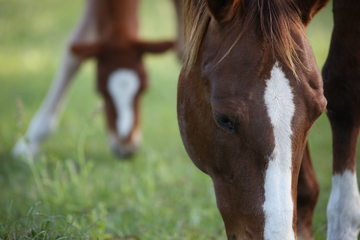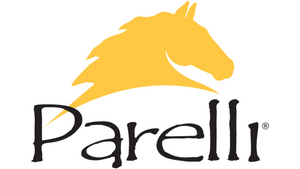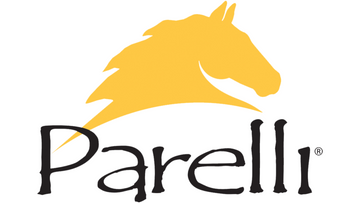
When considering the average cost of owning a horse, various factors come into play. The initial price, breed, pedigree, age, and training are just a few different factors that contribute to the overall cost. Your location and the specific expenses associated with health care will also impact the final amount. It is essential to carefully assess all these factors to ensure that you make a well-informed decision when purchasing a horse.
The initial price of a horse can range from $500 to $5,000 to $50,000 USD or more, depending on pedigree, performance record, training or development and manners. However, this is just the beginning. As a horse owner, ongoing costs such as hay, feed, veterinary exams, training, education, and grooming should also be considered. Depending on your location and specific needs, annual costs may range from $1,000 to $2,500 or more (all prices here are quoted in USD, but this should give you a starting point to calculate from no matter where you live around the world).
Taking the time to research and budget for all these expenses will help you determine the true cost of horse ownership and ensure that you provide your beloved equine companion with a happy and healthy life.
Factors Affecting Horse Cost
Breed
A horse’s breed and breeding have a significant impact on their cost depending on their popularity, performance potential and distinctive features. Specific breeds such as Oldenburgs, Friesians, and Andalusians, may have higher upfront costs due to rarity, demand, and breed-specific traits.
Age
Younger, trained horses typically cost more than senior horses because they have more potential for longevity and development. As the horse ages, its value may decrease, especially if health or performance issues arise. Senior horses can be excellent teachers for inexperienced riders but can come with additional health care costs.
Pedigree
A horse's bloodlines play a role in its cost as well. Horses with a strong pedigree often have better performance records and may be more valuable. If a horse is related to a successful show or racehorse, its price may be higher than those without notable ancestors. However, not all pedigrees are equal, and it is essential to research a horse's lineage to determine its true value. As Pat Parelli likes to say, “You can’t ride the papers. But often in performance horses, pedigree isn’t a guarantee, but it gives you a chance.”
Location
Location can affect the price of a horse due to regional market variations. Some areas may have a higher demand for certain breeds or types of horses, resulting in higher prices. Transportation costs for purchasing a horse from across the country or even internationally also contribute to the total cost.
Costs of Horse Ownership
Veterinary Care
As a horse owner, you need to budget for regular veterinary care. This can include annual or biannual dental check-ups, vaccinations, deworming, and testing for travel. Unfortunately, horses can be accident-prone, and you should plan for occasional health-related emergencies. Remember that emergency vet visits and treatment for health problems will add to your overall expenses. Horse owners might spend around $500 - $2,000 per year on routine and emergency veterinary care.
Hoof Care
Proper hoof care is crucial for your horse's overall health. Budget for regular visits by a farrier for trimming, shoeing (if needed), and addressing any hoof issues. You can expect to spend around $30 - $150 per visit, depending on your location and the horse's needs. Most horses require farrier visits every 6-8 weeks.
Feed and Supplements
The majority of a horse's diet consists of hay and grain. A 50-pound bag of horse feed can cost between $14 - $50, lasting around 5-25 days, depending on the horse's size and activity level. Hay prices vary by region but usually cost around $5 - $25 per bale. If you live in an area with year-round grazing, you might save on feed costs compared to horse owners who feed hay year-round. You may also need to purchase supplements for your horse based on their nutritional needs. Yearly supplement costs can range from $200 up to over $3000. Keep track of your horse's changing needs to adjust your budget accordingly.
Training, Lessons & Clinics
Whether you're a beginner or an experienced rider, ongoing training and lessons are essential for you and your horse. The costs for training sessions and lessons can vary widely depending on the professionals credentials and location but typically range from $50 - $150 per session. Clinics and expos are also great educational tools for horse owners. Clinics and expos range from $20 to thousands of dollars, depending on location and level of involvement.
If you’re considering furthering your horsemanship education, check out our recommendation of Licensed Parelli Professionals. These exceptional horsemen and horsewomen live all over the world, specialize in partnership based horsemanship and are passionate about helping you learn the Parelli Levels Program. They have studied with Pat Parelli himself and are endorsed to teach his program and help you live your best horse life. It’s certainly worth investing in your education as you take all the costs and variables of a horse into consideration. Many professionals also have lesson horses if you have not yet taken the leap into horse ownership. You may be able to start your Parelli journey before you even purchase your perfect partner!
Boarding
If you do not have property, you must board your horse at a facility. Boarding options include self-care, partial board, and full board, where the level of care provided increases at each level. Boarding facilities charge different rates, with an average monthly cost of $150 - $1,500. Pasture board is usually less expensive than stall board but might not suit every horse or owner.
Equipment and Tack
Investing in quality equipment and tack for your horse is essential for safety, comfort, and performance. Upfront costs include a saddle, bridle, grooming supplies, halters, lead ropes, training lines, sticks and blankets. Over time, you'll need to replace worn or damaged items. The total cost of equipment and tack will depend on the type and quality you choose. High quality equipment such as the Horseman’s Halter & Twelve Foot Training line for Levels 1 & 2 in the Parelli Program, will last you for years to come.
Insurance and Emergencies
Equine insurance is important for protecting your investment in your horse. The insurance cost is roughly 1.5-3% of the horse's value, with some variations based on the horse's intended use and overall coverage selected. In addition, you should have a financial plan in place for emergencies, whether through savings or access to credit. Unexpected events can happen anytime, so being prepared can save you from making health-related decisions based on finances.
Special Considerations
When considering the cost of owning a horse, there are a few special factors you should also be aware of. In this section, we will cover free horses and specific state costs.
Free Horses
Sometimes, you may come across opportunities to acquire a horse for free. However, it's important to note that even "free" horses come with ongoing expenses for their care and maintenance. Ponies, for example, still require feed, shelter, and veterinary care. Make sure you know why the horse is being rehomed and any existing health issues. These may not be an issue for you, but knowing what you are getting ahead of time is important.
Specific State & Country Costs
The costs of horse ownership can vary significantly depending on the country and state in which you live. For instance, owning a horse in Texas might be more affordable compared to states like New York or California. Horse cost estimates vary widely depending on factors such as the availability of pasture land, local hay and grain prices, and boarding and stable fees in your area.
It's essential to remain aware of the ongoing costs associated with horse ownership, even when acquiring a horse for free. State-specific or country specific expenses can also significantly affect your overall horse care budget. As a potential horse owner, understanding these costs will help you make informed decisions and plan accordingly for your new equine companion.
Horse ownership should be a rewarding and fulfilling experience not a financial stress, so it is certainly worth taking the time it takes to properly prepare ahead of time for your equine partner’s needs and care.








All the information about fear of horses was wonderful. I in my past was never afraid when I was younger, but then when I had a couple of falls off of my horse, that’s spooked I started to be fearful, and even though I did work with him with the seven games, it seem like he never got over being spooky, I still have him, but his one knee is not good anymore. He does receive injections, but I cannot ride him anymore unfortunately, which is quite painful for both of us. But I must say, and share so many many years ago. I am so glad that I was able to learn the seven games and to learn about myself more with all of the Parelli information. I give thanks to Parelli and all his staff and teachers. I am forever grateful.